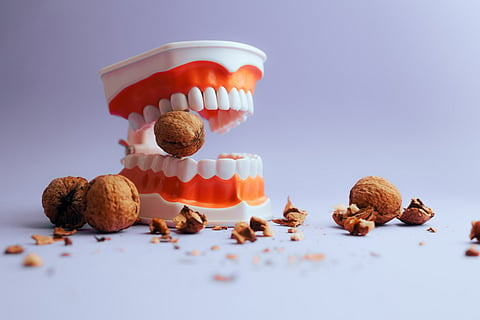

Chewing isn’t just about breaking food into smaller pieces — it’s also a little workout for your brain. Scientists have found that the simple act of chewing can increase blood flow to the head, sending more oxygen and glucose to the brain. This gentle stimulation wakes up areas linked to attention and memory, making you feel more alert and focused.
That’s why some people chew gum before exams or while studying. It’s not a myth — chewing keeps the brain active, especially in the hippocampus, the part responsible for learning and memory. Studies show that students who chew gum during tests often perform slightly better on short-term memory tasks. The rhythm of chewing seems to calm stress while keeping the mind sharp, almost like a background beat that keeps your thoughts steady.
It’s not just gum that helps. Crunchy foods like carrots, apples, or sugarcane naturally engage the same chewing muscles and offer the added benefit of nutrients. The act of biting and crunching sends tiny sensory signals that help you stay present — a built-in mindfulness trick your body already knows.
Of course, moderation matters. Constant gum chewing can tire your jaw or cause strain, so it’s best used as an occasional brain booster, not a habit. Still, it’s fascinating how something as simple as chewing can tune your brain’s rhythm, steady your nerves, and sharpen your focus — all without opening a textbook.